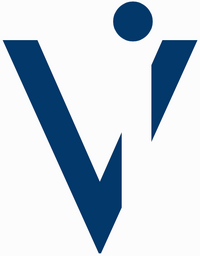Veritas Institute: Difference between revisions
(Created page with "{{Infobox organization | name = Veritas Institute<br/>Institut Veritas<br/>Istituto Veritas | native_name = | image = 200px | alt = | caption...") |
|||
| Line 76: | Line 76: | ||
== Organisation == | == Organisation == | ||
=== Mission === | === Mission === | ||
According to the Veritas Institute's founding charter, the mission of the body is to "anaylse trends, developments in multiple sectors of socio-economic and political life in relation to the continued preservation and celebration of Euclean civilisation. From this analysis, the Institute will formulate policy suggestions for Euclean governments to pursue, while also the Institute will advocate and champion said policies." The Institute has identified several key socio-economic and political trends it considers a "threat to the preservation and dominance of Euclean civilisation and its corresponding values, traditions and ethical systems", such as {{wp|mass migration}}, {{wp|deindustrialisation}}, {{wp|identity politics}}, {{wp|immorality|decline in shared civic morals}} and rising inter-state tensions, primarily with [[Chistovodia]], [[Xiaodong]], [[Zorasan]] and to a lesser extent, [[Soravia]]. The charter mandates that the Institute "not simply stonewall these trends and become a voice of protest, but formulate, propose and advocate policies agendas that can turn these trends around." | |||
=== Policies === | === Policies === | ||
== Notable members and leaders == | == Notable members and leaders == | ||
Revision as of 22:09, 27 April 2021
 | |
| Motto | "Guarding the heritage and securing the future of Eastern civilisation." |
|---|---|
| Formation | March 1, 2021 |
| Type | Think tank |
| Legal status | Non-profit corporation |
| Purpose | Policy analysis Policy formulation and advocacy |
| Headquarters | Solaria, Etruria |
| Location | |
Region | Euclea |
President and CEO | Romolo Augustino Ferracci (acting) |
Executive Directors | BIG BOSS MAN Alessandro Vicario Aurelia Stefania Sferrazza Jean-Paul Rivière |
| Affiliations | Independent |
| Expenses | |
| Endowment | € 115.3 m |
Staff (2021) | 100 |
| Website | www.veritas.org |
The Veritas Institute (Gaullican: Institut Veritas; Vespasian: Istituto Veritas) is a right-wing non-profit political advocacy organisation and think tank. It was formed in early 2021 by Alessandro Vicario, Jean-Paul Rivière, Marcus Dixon and Gert van Zanen. Its headquarters are located in Solaria, Etruria but operates "hub offices" in Morwall, Verlois and Westbrücken. The founding objective of the institute is the "defence of Eastern Civilisation from economic, demographic, political and diplomatic threats and counter-developments." The Institute also promotes economic decoupling from major powers deemed a "threat to the freedoms and well being of Euclea."
The Institute is known to operate links with several Euclean political parties and movements, including the Tribune Movement, Front National, Estmere First, Sotirian Democratic Union, Democratic Alternative and the National Consolidation Party. The institute also operates links to key corporations and businesses, and champions pro-business policies, de-regulation and combatting green politics. The Institute has been described by The Continental, as the "most professional and slick right-wing think tank in Euclea."
History
Organisation
Mission
According to the Veritas Institute's founding charter, the mission of the body is to "anaylse trends, developments in multiple sectors of socio-economic and political life in relation to the continued preservation and celebration of Euclean civilisation. From this analysis, the Institute will formulate policy suggestions for Euclean governments to pursue, while also the Institute will advocate and champion said policies." The Institute has identified several key socio-economic and political trends it considers a "threat to the preservation and dominance of Euclean civilisation and its corresponding values, traditions and ethical systems", such as mass migration, deindustrialisation, identity politics, decline in shared civic morals and rising inter-state tensions, primarily with Chistovodia, Xiaodong, Zorasan and to a lesser extent, Soravia. The charter mandates that the Institute "not simply stonewall these trends and become a voice of protest, but formulate, propose and advocate policies agendas that can turn these trends around."